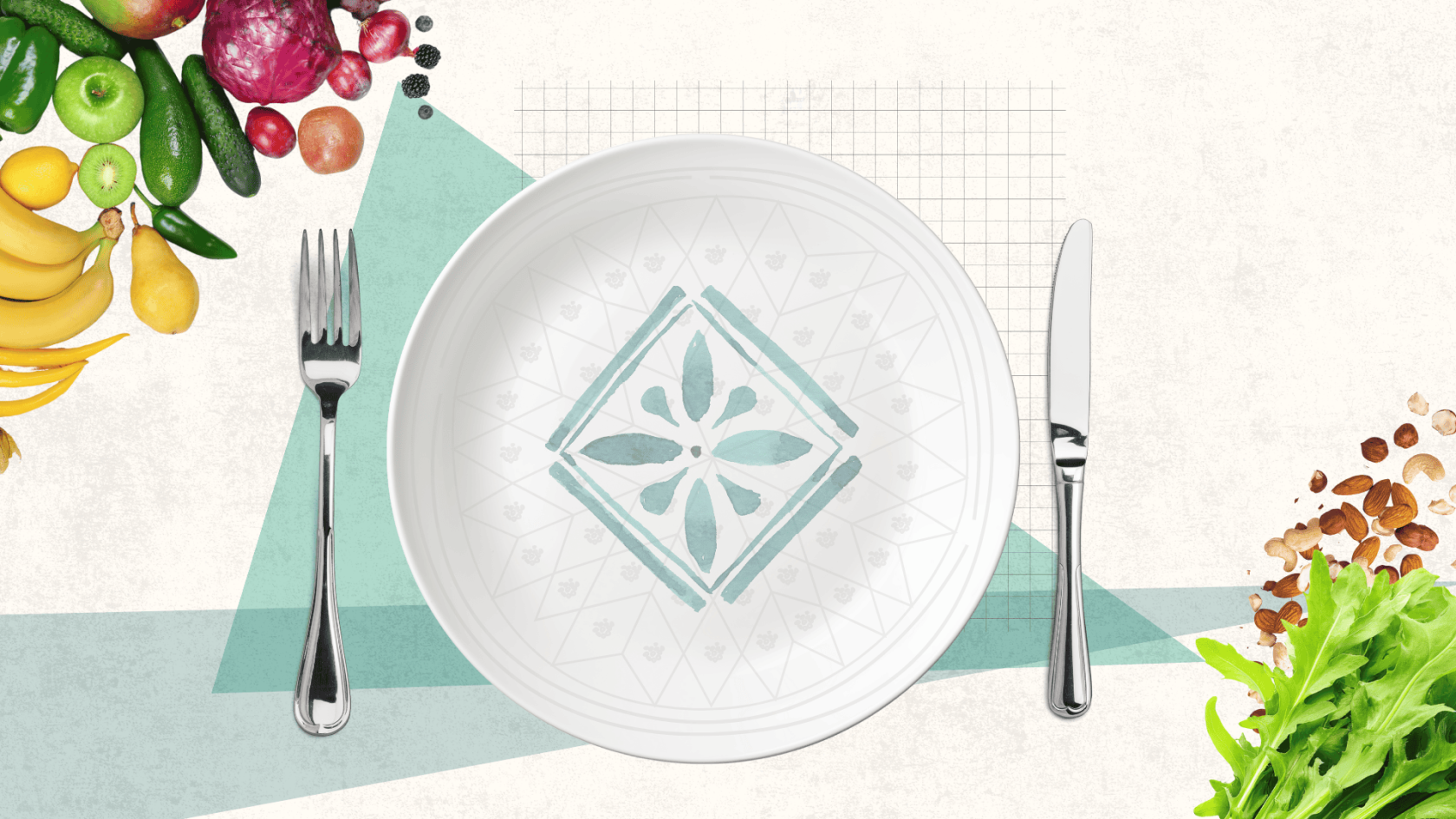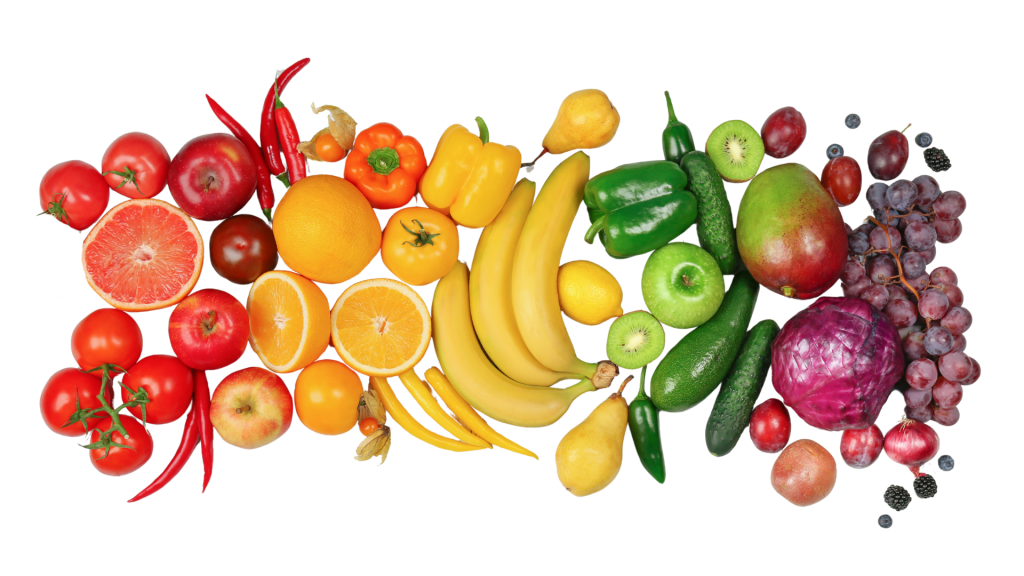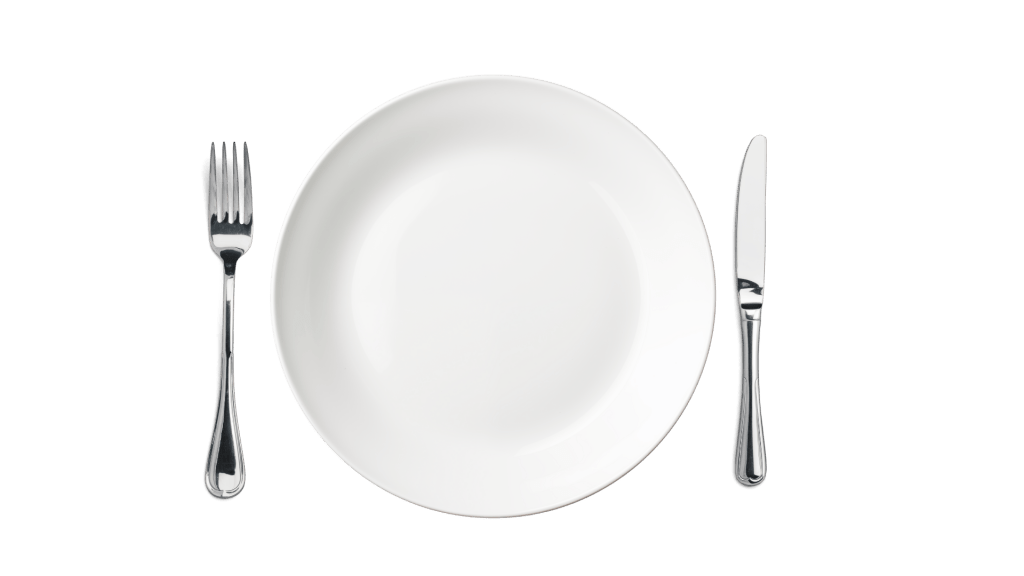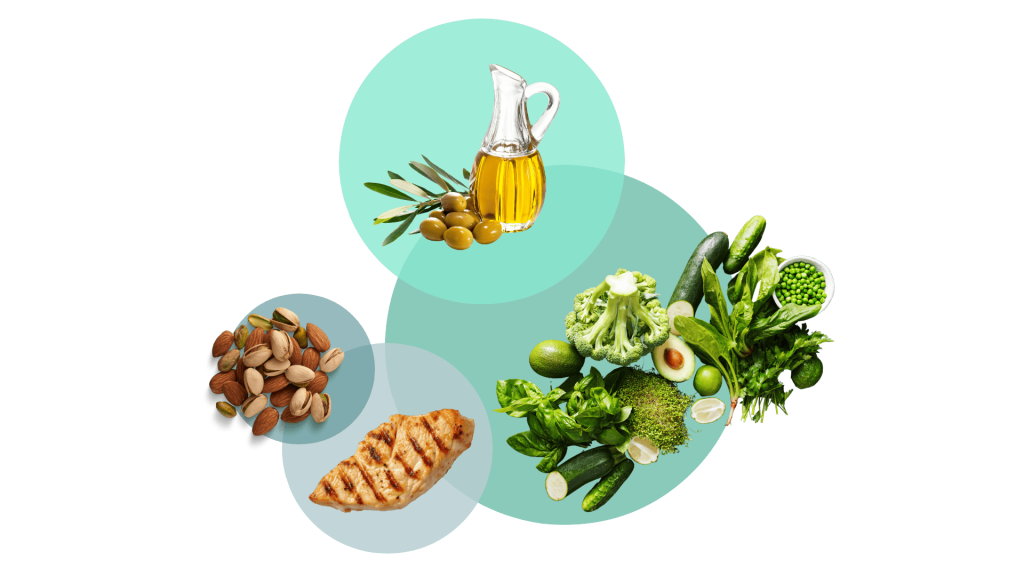‘Harvard Thinking’: Why the Mediterranean diet works

Illustrations by Liz Zonarich/Harvard Staff
In podcast, experts break down universal appeal, research-backed benefits of a health trend that adds more than it takes away
Diet fads come and go. But at least according to research, it appears the Mediterranean diet is here to stay.
“There is no doubt whatsoever that the Mediterranean diet is able to bring down the rates of heart disease and diabetes,” said Miguel Ángel Martínez González, an adjunct professor of nutrition at the T.H. Chan School of Public Health. “We also saw reductions in breast cancer, positive beneficial changes in cognitive function — and also premature death is reduced, so longevity is improved with the Mediterranean diet.”
In many ways, the word “diet” is a misnomer. People hear the word and assume it means restricted, short-term eating habits with the sole goal of losing weight. That’s not the case, said Uma Naidoo, the director of nutritional, lifestyle, and metabolic psychiatry at Massachusetts General Hospital and Harvard Medical School.
“We have to move Americans away from this obsession with their waistline,” she said. “What I notice in my clinic is that many people will by chance and unexpectedly lose weight because they’re actually eating healthier … I much prefer to make the focus how you can add these healthy foods to your diet than take anything away.”
In this episode of “Harvard Thinking,” host Samantha Laine Perfas talks with Naidoo and Martínez González about the evidence-based benefits of adopting the principles of the Mediterranean diet.
Listen on: Spotify Apple YouTube
The transcript
Uma Naidoo: People feel better if they can add things to their diet rather than restrict things. So I think that the abundance of the Mediterranean diet and the number of things you can do — that also leads to the fact that you don’t feel, “I’m giving up something” and “I can’t eat something” — that’s a very important thing psychologically.
Samantha Laine Perfas: There’s been no shortage of studies about just how beneficial the Mediterranean diet can be. It’s been shown to increase life expectancy, decrease risk for dementia, improve mental health and cognitive function, and even lower the risk of heart disease. The Mediterranean diet has shown positive results for nearly every demographic.
What is it that makes the diet so great?
Welcome to “Harvard Thinking,” a podcast where the life of the mind meets everyday life. Today I’m joined by:
Naidoo: I’m Dr. Uma Naidoo. I’m the director of nutritional, lifestyle, and metabolic psychiatry at Massachusetts General Hospital, Harvard Medical School.
Laine Perfas: She’s a trained psychiatrist, chef, and nutritional biologist. She’s also written two books, “This Is Your Brain on Food” and “Calm Your Mind with Food.” Then:
Miguel Ángel Martínez González: Miguel Martínez González. I am an adjunct professor at the Department of Nutrition at the Harvard School of Public Health, and I am a professor of public health at the University of Navarra in Spain.
Laine Perfas: He’s been the principal investigator for PREDIMED and PREDIMED-Plus, two large trials studying the relationship between the Mediterranean diet and the risk of cardiovascular disease.
And I’m Samantha Laine Perfas, your host and a writer for The Harvard Gazette. Today we’ll explore not just what makes the Mediterranean diet so popular, but how people can make nutritional changes that work for them day to day.
So what exactly is the Mediterranean diet?
Martínez González: When we say Mediterranean diet, we are not thinking of a slimming diet. We are thinking of an overall food pattern that is mainly plant-forward, but it is not exclusively from vegetal origin. So you can include small amounts of poultry or fish or eggs without any problem. It is a gentle push toward something similar to a vegetarian diet but without being fully vegetarian. The main dishes are salads with a lot of extra virgin olive oil. Extra virgin olive oil is very important in the Mediterranean diet because it is not a refined oil. It is the natural juice of the olives, so it has a lot of anti-inflammatory properties. The consumption of olive oil can represent almost 20 to 25 percent of the total calories that people are intaking. Another element of the Mediterranean diet that is very important is fresh fruit, fresh vegetables. We recommend two servings of vegetables and three pieces of fruit a day. So you can eat fruit for breakfast, lunch, and dinner. This provides a lot of bioactive compounds with antioxidant and anti-inflammatory properties.

Laine Perfas: What are the benefits of this diet, and what is it about the food that brings those benefits?
Martínez González: There is no doubt whatsoever that the Mediterranean diet is able to bring down the rates of heart disease and diabetes. PREDIMED was instrumental in showing a 30 percent reduction in cardiovascular disease with an intervention promoting the Mediterranean diet as compared to another control group that was advised to follow a low-fat diet. We also saw reductions in breast cancer, positive beneficial changes in cognitive function, and also premature death is reduced, so longevity is improved with the Mediterranean diet.
Naidoo: PREDIMED-Plus really helped us understand, on a deeper level, the intersection between mental health and metabolic health. The reduced risk of depression, the improved cognitive performance in memory. Overall lower systemic inflammation and the improvement of dysbiosis in the microbiome balance were extremely helpful in terms of mental health conditions.
“Inflammation is such an underlying driving factor of conditions like depression, anxiety, and cognitive disorders. And the Mediterranean diet is an easy way to start fending off that inflammation.”
One of the things we’re understanding about mental health is that inflammation is such an underlying driving factor of conditions like depression, anxiety, and cognitive disorders. And the Mediterranean diet is an easy way to start fending off that inflammation.
Laine Perfas: And to be specific, olive oil plays a large part in that, correct?
Martínez González: Extra virgin olive oil is able to provide some components like oleocanthal, hydroxytyrosol that have anti-inflammatory properties. These components are antioxidant. They prevent the LDL particles, the bad cholesterol, to be oxidized. Also, the monounsaturated fat in olive oil and the minor components of the extra virgin olive oil that are not present in canola oil or other kinds of oil are able to improve the sensitivity to insulin. This reduces the risk of diabetes and insulin resistance.
We have seen that the blood pressure does not go up with age if, instead of consuming ultraprocessed foods, you are consuming natural foods. Because the problem with ultraprocessed foods is that you don’t recognize what is in that product. Ultraprocessed foods have many additives that are able to raise blood pressure, so hypertension, high blood pressure, is a big problem prevented with the Mediterranean diet. So we have advantages in terms of anti-inflammatory, antioxidant, insulin sensitivity, and reduction of hypertension. All this together is very powerful.
Laine Perfas: Uma, you’ve written a lot about the gut-brain connection. Can you tell us about how that works, and how does that connection affect us psychologically?
Naidoo: You know, the gut-brain connection is one of the mechanisms in nutritional psychiatry that I like to say explains that mood-food connection. By consuming the foods that Miguel outlined and those types of dietary ingredients, you’re really nurturing the gut microbiome. You are feeding the gut microbes with healthy plant-forward food and fiber, which they need. When they are in balance and they are fending off inflammation with polyphenols from all the different colors of plant foods, etc., their breakdown products are very healthy and very good for the gut microbiome. That is when, clinically, in mental health, I see an improvement of symptoms. On the other hand, if someone has made a sudden switch — maybe it’s a job change, maybe it’s stress — and they suddenly start eating less healthy food, the opposite happens. So let’s say something that is really not in line with the Mediterranean diet and more processed, ultraprocessed foods, the hydrogenated oils and trans fats, the gut microbiome goes into what is called dysbiosis or an imbalance, where the negative, nasty microbes are being fed food that they like: extra sugar, unhealthy foods. That’s when inflammation is set up and clinically that tends to correlate with an uptick of symptoms like, say, anxiety and depression.
Laine Perfas: I think many people, when we think about diets like the Mediterranean diet or other diets out there, we’re often associating them with something as simple as just losing weight. Why would it benefit us to think more broadly about diets as to not just be something about how much we weigh, but really about how we fuel all aspects of our bodies?
Naidoo: What I notice in my clinic is that many people will by chance and unexpectedly lose weight because they’re actually eating healthier. And when they’re eating satiating foods, which are filling, they are less likely to need candy and cake and snacks and ice cream, they really are full and satiated after a meal, and they start to also adopt healthier habits as they feel better; they start to walk a little bit more, exercise a little bit more. So I much prefer to make the focus how you can add these healthy foods to your diet than take anything away. That really starts to become a pathway, because I know someone’s going to feel better, lose weight, and be emotionally a lot better.
We have to move Americans away from this obsession with their waistline. I’m not saying it’s not important, it’s very important. It’s very important for cardiac disease, Type 2 diabetes, mental health, all of it. But I think what we tend to do is watch a number on a scale instead of: What can we do every day in our eating habits to be bringing in healthier foods? And I think that is something I would ask people to rethink in their daily lives.
“We have to move Americans away from this obsession with their waistline. What I notice in my clinic is that many people will by chance and unexpectedly lose weight because they’re actually eating healthier.”
Martínez González: When I see in the U.S. how the salads are dressed, it is like sprinkling drops of olive oil. It is not the case in the traditional Mediterranean diet. The vegetables, the lettuces are literally swimming in olive oil. It is very tasty. It is very pleasant. It is not a tortured diet. What we have seen in our studies is that the adherence, the compliance, is very good. People are enjoying the Mediterranean diet; once they adopt the Mediterranean diet, they keep the Mediterranean diet forever. So this is very good for prevention because it is tasty, it is palatable. You are adding health and pleasure at the same time.
“It is very tasty. It is very pleasant. It is not a tortured diet. … You are adding health and pleasure at the same time.”
Laine Perfas: I like that note that it’s not a tortured diet, it is a tasty diet.
Naidoo: People feel better if they can add things to their diet rather than restrict things. So I think that the abundance of the Mediterranean diet and the number of things you can do — that also leads to the fact that you don’t feel, “I’m giving up something” and “I can’t eat something” — that’s a very important thing psychologically.
I’m also excited that, culturally, there have been a couple of studies out of India looking at an Indian-adapted Mediterranean diet — smaller groups, and of course we need more research to be done, but taking those basic principles and trying to adapt it to a slightly different diet, but still, really convey healthy eating.
Laine Perfas: I’d love to hear a little bit more about that. One question I’ve had with the Mediterranean diet is if it really can be for all groups of people. Is it possible to have a one-size-fits-all diet like this, or should it be shaped to be appropriate for different groups of people or different palettes?

Naidoo: As a young attending, it was called out by a very smart Harvard medical student when I was teaching — we were talking about the Mediterranean diet, and she said to me, “Dr. Naidoo, I don’t understand, all you doctors talk about the Mediterranean diet, but I’m Chinese and we don’t eat chickpeas. In fact, it’s not part of our culture.” It was a great conversation, and I learned so much. I’ve always felt the importance of having some cultural adaptations as you are practically offering advice to people. So, you know, chickpeas are – if you go to an Indian restaurant, they’re called chole, or if you’re speaking to someone who is of East Asian or Chinese culture, it could be mung beans or edamame and black beans and other things that they might be consuming. Unless it’s traditional American baked beans, which have a lot of sugar, a lot of other legumes and beans are pretty healthy. So I do think one factor is adapting it to the culture that’s relevant to that individual, so they understand the principles of what’s been tested in the research.
The other factor is that the studies in the Indian-adapted Mediterranean diet were very small, so these are new. Most of the ones that I saw were this year. And some of them had very few women participants as well, but they were looking at an improvement of things like heart disease, which I think are relevant. So what I’m hopeful about is those can be extended in bigger trials to offer better health outcomes for those populations and others.
Martínez González: I think that the Mediterranean diet needs to be adapted to different cultures, and it is not so difficult. We are helping to conduct a randomized trial in Singapore. It is straightforward to adapt the Mediterranean diet. You can do an adaptation with the main principles. There are many varieties of tree nuts, of legumes, many different varieties of fish or seafood. You can combine the traditional elements of the local culture with those of the Mediterranean diet, following these lines: preferring fish instead of meat, preferring poultry instead of red meat, putting a lot of salads and fresh fruits, the typical fruits of the region. So this can be very easily adapted to many cultures.
“You can combine the traditional elements of the local culture with those of the Mediterranean diet, following these lines: preferring fish instead of meat, preferring poultry instead of red meat, a lot of salads, and fresh fruits.”
Laine Perfas: I’m hearing that one of the major values of the Mediterranean diet is that it provides a set of principles to follow, and that within those principles, there’s actually a lot of flexibility. That makes me wonder if then the Mediterranean diet is really all that unique, or is it simply a different way of saying: Eat real food?
Naidoo: I think that you are correct that we are talking about healthy eating principles, but here’s the thing: Most people know what healthy eating is, but they don’t tend to do it. I think where you take healthy principles, and you do study those principles across multiple disease profiles, large groups of studies that are randomized control, and replicated in different cultures in different parts of the world, it helps to give research structure but also helps to guide people. It still doesn’t necessarily mean they’re going to follow it, but there is flexibility and an understanding that you can really add things into your diet. Especially if they are of this region, because these ingredients have been studied to be healthy.
I also think when it comes to mental health — for the trials that, say, took principles of the Mediterranean diet and tried to look at healthy eating principles in people to make it more specific to mental health — they would’ve done and have done things like anxiety scales, HAM-A or PHQ-9, to see, did they change some eating principles? Did they actually improve and feel better? That’s where it gets to be a little bit more niche when it comes to nutritional psychiatry. But I also feel like some structure and guidance around how to eat healthy, where there’s so much noise in the world — often “eat this, not that” mentality — is very helpful from principles of the Mediterranean diet.
Martínez González: There are several things that are unique in the Mediterranean diet. The way of dressing the salads or preparing the chicken or the fish is not with a lot of salt, it is always with aromatic herbs, with a special dressing that is natural, that is not processed. The culinary practices make it very tasty and also very healthy because they come from natural ingredients. In fact, the Culinary Institute of America is promoting the Mediterranean diet all over the world. People are learning how to cook in the Mediterranean way, and this is one of the secrets of the Mediterranean diet. What we see in the experimental studies we are doing with thousands of people is that they get used to cooking like that. They learn to cook. They are never consuming ultraprocessed foods. This is very important because in nutrition, a key issue is the replacement.
For example, in PREDIMED-Plus, when we designed the study at Harvard in 2012, we estimated, according to the equations for risk and so on, that about 10 percent of our participants in six years will have a heart attack. The reality after six years of intervention was 3 percent. I think that most of the effect comes from replacing the bad things with good things. Keeping on track. Keeping always on track for six years, that is not so easy. If you speak of intermittent fasting, extreme diets, keto diet, people cannot afford six years of that diet. Never.
Naidoo: They’re not sustainable. A lot of those are not sustainable. Some people who are very committed will do it, but most people cannot sustain them.
Laine Perfas: I think a lot of diets, including some of the ones you mentioned, haven’t been studied that much. What makes the Mediterranean diet different, and does that give it a little bit more sticking power than some of these other diets?
Martínez González: The low-fat diet was investigated very deeply in the largest trial that was ever conducted in the United States for nutrition: the Women’s Health Initiative dietary trial, published in 2006. And they found after following, for eight years, almost 50,000 women with visits with dieticians every three months, they found nothing with regard to the prevention of heart attacks or early mortality. So we do have good research on the low-fat diet, but it was null. At the same time that these results of the Women’s Health Initiative dietary intervention trial were published, we were conducting the PREDIMED trial. For a long time, it was the recommendation by the American Heart Association: Follow a low-fat diet. It was a simplifying message to say, “Well, all fat is bad.” But we were providing extra olive oil that it is 100 percent fat! And nuts, these are 60 percent fat. That was what we were providing in the PREDIMED, and it was, like, the opposite.
Naidoo: And I think the other point about this is — where the food industry and marketing of food becomes involved — there is a certain amount of messaging to the public that impacts what they eat. So if you say to people, “Well, fats are bad and you have to eat low-fat,” then everything in the food industry, they cut the fat, it’s low-fat, it’s nonfat. But fat is flavor. So when they remove the fat, they put in sugar in various forms through a higher carbohydrate level in those nonfat, low-fat products. And that unfortunately really tipped our health balance as well. Because people started eating low-fat, but they were then not healthy in other parameters. So I think one of the things we have to acknowledge is the interaction between a certain guideline from — whether it’s the American Heart Association, whichever one it is, but then what the food industry does with it, because that’s a whole other level of marketing and level of innovation that doesn’t necessarily serve our health. I will often say to people, the food industry and the food marketing aspects of that are not there to take care of our health. We are in charge of that.
Laine Perfas: How feasible is it to make the switch to the Mediterranean diet? How do you incorporate some of those principles and foods into your diet in a way that doesn’t feel restrictive or like you have to completely start from scratch in your kitchen and reimagine all of your meals?

Naidoo: For me, the way to help people toward this path is breaking down or chunking down the principles of what it is. Maybe you can start by, what fat are you cooking your vegetables in? It could be an unhealthy fat. Let’s start to switch it to olive oil. We make the assumption that people know that olive oil is a healthy fat and should be eating it; that may not be the case in all parts of the U.S. Another easy thing to mention is: Why not add healthy nuts to your snacks? Give them a measure of what those amounts should be so that people are not snacking on two cups of nuts. Very different calorie counts there, and probably too calorie-dense for what their everyday diet should be. Can they add one to three more servings of vegetables every day? And then once they get used to that, can they add those servings of vegetables to each meal? Remember, these don’t have to be huge servings portions that go with whatever else they’re eating.
What type of proteins are you eating? Can you include more beans, legumes, those nuts and seeds that I mentioned, and poultry, whatever beef you’re eating or whatever it is — but it’s a plant slant, right? It’s plant-forward. Adding leafy greens — really healthy habit, low calorie, satiating, and high in vitamin B9, which is folate, and low folate decades ago was shown to be associated with a low mood. So I think it’s taking what may seem to someone as a complex diet and breaking down a few principles that they can start with and then dive deeper into that eating pattern.
Martínez González: There are challenges in moving the American population toward the Mediterranean diet because the American population is used to cooking with a lot of meat, sausages, burgers, fast food, and sweet desserts full of sugar and cream, using butter mainly instead of oil for bread, for breakfast, for everything. So there are many challenges.
Professor Walter Willett at the Department of Nutrition is doing a great job with the Culinary Institute of America to train people responsible for restaurants, to train people in the hospital, to have teaching kitchens in the hospitals and to train a lot of people. They are learning. And more and more people are incorporating these principles. Willett did a lot in this regard because he was the first to contradict the message of the low-fat diet that was very prevalent in the ’90s and the early 2000s. He always said the quality of fat and the quality of carbohydrates are more important than the quantity of fat and the quantity of carbohydrates.
Laine Perfas: What is your number one tip you would give someone who’s listening to this podcast and wants to try to adjust to the Mediterranean diet?
Martínez González: So I will say to adopt the pattern of fruit as the usual dessert. Keep the sweet, the creamy, sugary desserts only for special days, but on a daily basis, try to switch to eating fruit as the usual dessert. This is very powerful. This is a very important change that gives you a lot of advantages in terms of a healthier diet.
Naidoo: I think that I usually like to ask everyone or someone who’s talking to me: What’s one unhealthy habit — food or beverage or habit in general, usually I would prefer that it’s food or beverage — that you’ve picked up that you’re unhappy about? Because most people know what it is. And they will be talking about it and regretting having the ice cream or whatever it might be, and because they have mental awareness of it, I asked them to stop there. That habit, if they can just switch that one thing, because they’re aware of it, you can offer easy solutions. You can make an ice cream made from fruit. You can make an ice cream made from bananas and even make it chocolate-flavored. I have the recipe in my book, “This Is Your Brain on Food.” Or you can, for Thanksgiving, have those special desserts, but for your everyday life, have a clementine, have some blueberries, pair that with some nuts. Making simple dietary changes, introducing the Mediterranean principles from the Mediterranean diet into our everyday eating, are much more sustainable than whatever is happening on the news cycle around what we should eat, what we shouldn’t eat, and whatever the current headline is.
Laine Perfas: Thank you both for talking to me today.
Naidoo: Thank you. Thank you for having us. Thank you, Miguel.
Laine Perfas: Thanks for listening. If you’d like to see a transcript of this episode or listen to our other episodes, visit harvard.edu/thinking. To support us, rate us on Apple Podcasts and Spotify, or share this episode with a friend or colleague. This episode was hosted and produced by me, Samantha Laine Perfas, with production support and editing by Sarah Lamodi. Additional editing by Ryan Mulcahy, Paul Makishima, and Max Larkin. Original music and sound design by Noel Flatt, produced by Harvard University. Copyright 2025.
Recommended reading
- This is Your Brain on Food by Uma Naidoo
- The best thing about the Mediterranean diet? It doesn’t taste like a diet. by The Harvard Gazette
- Mortality benefits of Mediterranean diet know no boundaries by The Harvard Gazette





